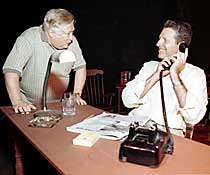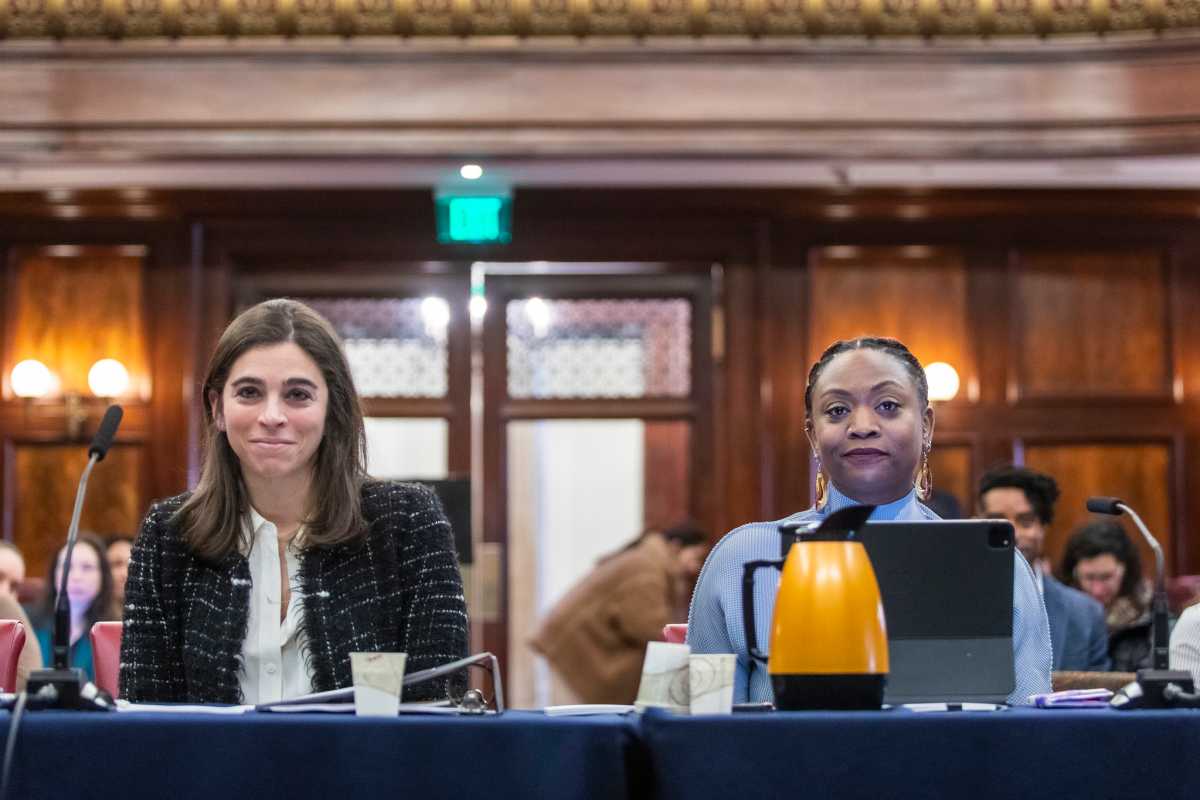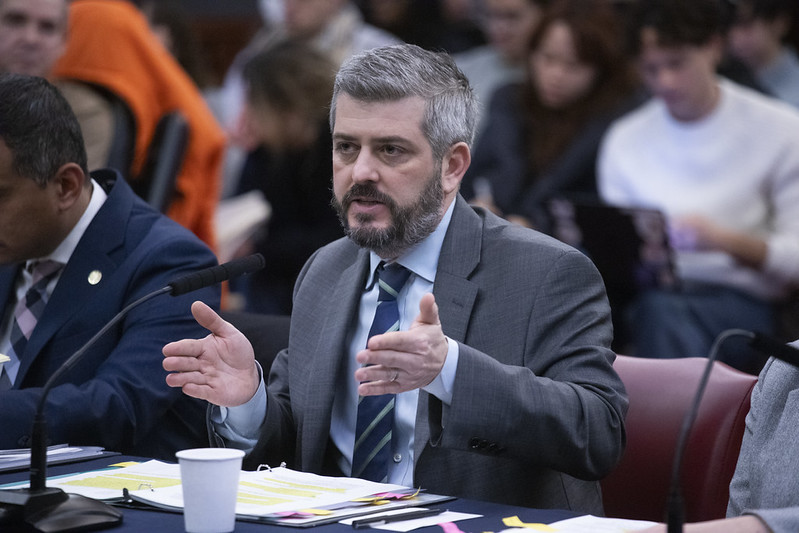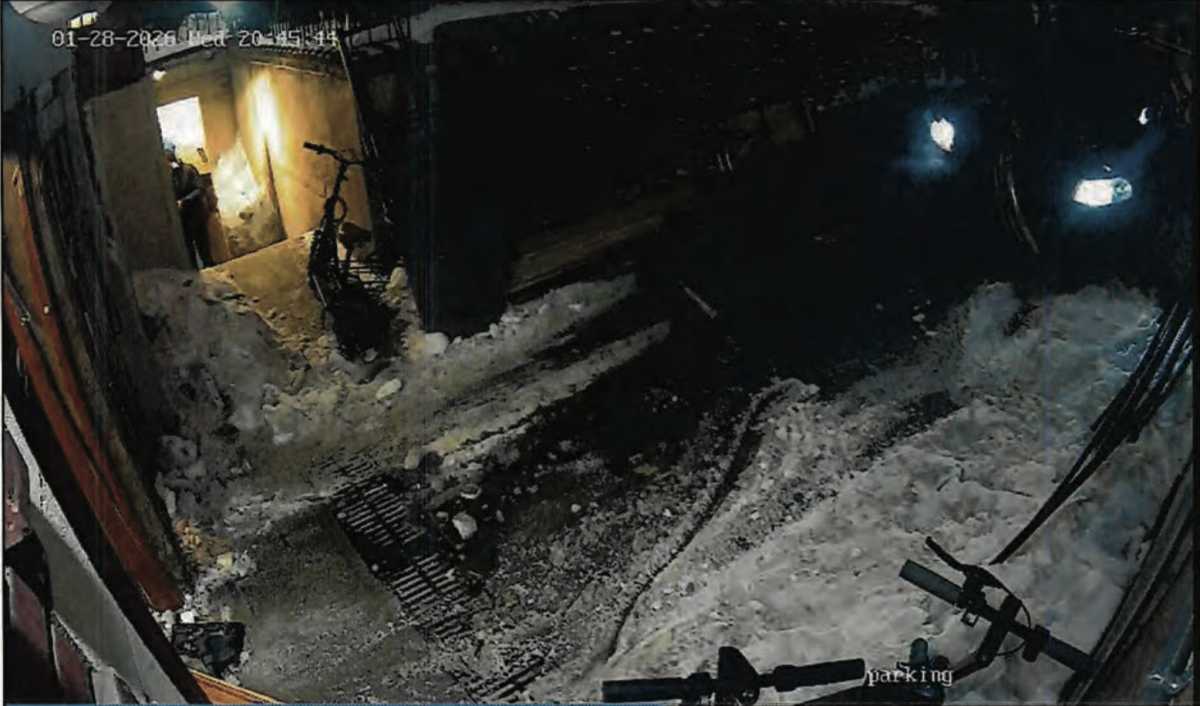The Heights Players’ 47th season contains
many traditional favorites and a few surprises. Musicals are
represented by "The Fantasticks," "Camelot"
and "My Fair Lady"; drama by "Picnic" and
"Sweet Bird of Youth"; and comedy by "Come Blow
Your Horn" and "Heaven Can Wait."
For the first time in many years, there will be no Agatha Christie
in the Heights Players season. Instead, the Players will present
Elihu Winer’s "Anatomy of a Murder." Another interesting
choice is "I Remember Mama," which for many, is best
known in its television incarnation.
The season begins with "Anatomy of a Murder" (Sept.
6-22) directed by Jim McNulty. The mystery thriller involves
a rookie lawyer charged with the defense of a lieutenant accused
of murdering a bartender who allegedly raped his wife.
The 1959 film was directed by Otto Preminger, with a score by
Duke Ellington and a stellar cast that included James Stewart,
Lee Remick, Ben Gazzara, Arthur O’Connell and Eve Arden. Its
frank discussion of contraception, pink panties and rape shocked
audiences of the time. Only the onslaught of "Ben-Hur"
kept it from picking up several Academy Awards.
Long-running legend "The Fantasticks," directed by
Steve Velardi follows (Oct 4-20). Based on Edmond Rostand’s "Les
Romanesques," with music by Harvey Schmidt and lyrics by
Tom Jones, the play opened on a shoestring budget May 3, 1960
at the Sullivan Street Playhouse and went on to make theatrical
history for more than three decades.
The play tells the whimsical story of young lovers whose innocent
view of love is tempered by the vicissitudes of life and eventually
transformed into the mature, sustaining love of adulthood.
"Picnic," the Heights Players’ third production, directed
by John Bourne, deals with a familiar theme of playwright William
Inge – the unfulfilled dreams of Midwestern women living in sleepy,
rural towns. It opened Feb. 19, 1953 at the Theatre Guild where
it ran for 477 performances; was adapted for the screen by Joshua
Logan (who directed the play) in 1956; and was revived by the
Roundabout in 1994.
The play is a psychological drama about a virile young drifter
who wanders into a Kansas town one Labor Day and wins the hearts
of many local ladies, including Madge Owens, the fiance of an
old friend.
Bourne, whom the late composer and theater critic Clark Gesner
once dubbed "Mr. Agatha Christie," said he deliberately
"decided to take the year off from Christie," and asked
to do this realistic drama. "Picnic" will run Nov.
1-17.
"Camelot," which opened Dec. 3, 1960, was Frederick
Loewe and Alan Jay Lerner’s attempt to repeat the success of
"My Fair Lady" (1956). It again featured Julie Andrews
playing opposite a non-singing British actor, this time not Rex
Harrison but Welshman Richard Burton.
Loewe retired after "Camelot," ending the successful
partnership. But this adaptation of T.H. White’s "The Once
and Future King" has been frequently revived, and this season
the Heights Players will bring the musical to life again, under
the direction of Ed Healy, Dec. 6-22.
"Sweet Bird of Youth," Tennessee Williams’ classic
Southern Gothic work about an aging Hollywood actress and the
young stud who takes advantage of her need to cling to her fading
youth, is the Heights Players’ next production.
The play began life as a one-act work-in-progress at the Studio
M. Playhouse in Miami in 1956; was subsequently revised and expanded
for its New York premiere, directed by Elia Kazan, and starring
Geraldine Page and Paul Newman; and was turned into a somewhat
castrated film version that conformed to the Production Code
in 1962. Robert J. Weinstein directs this seething drama for
the Heights Players (Jan. 10-26).
"’Come Blow Your Horn’ is a little different than our usual
productions," Players member-at-large Bourne told GO Brooklyn.
That’s because despite being Neil Simon’s first Broadway hit,
"Come Blow Your Horn" is best known for the Norman
Lear-adapted film.
Although the cast included such luminaries as Lee J. Cobb, Molly
Picon and Dean Martin, the film was mostly a vehicle for Frank
Sinatra, who plays the flamboyant Alan Baker. The plot revolves
around what happens when Alan’s younger brother, Buddy, moves
in and attempts to emulate his profligate sibling. Ellen Weinstein-Pittari
directs (Feb. 7-23).
"I Remember Mama" has the distinction of being a play,
a movie and a television series. All versions are based on Kathryn
Forbes’s autobiographical short stories collected in "Mama’s
Bank Account." The stories portray a family of struggling
Norwegian immigrants in San Francisco at the turn of the century.
Richard Rodgers and Oscar Hammerstein brought John van Druten’s
play, based on the stories, to the Music Box Theatre where it
opened Oct. 19, 1944 starring Mady Christians and a young Marlon
Brando.
In the 1948 film version, Irene Dunne took the role of Mama.
Peggy Wood starred as Mama in the 1946-1957 television series.
Ted Thompson directs this revival of van Druten’s play (March
7-23).
In one more instance of Hollywood recycling, Warren Beatty’s
"Heaven Can Wait" (1978) was a remake of "Here
Comes Mr. Jordan," a 1941 fantasy about Joe Pendleton (Robert
Montgomery), an up-and-coming prize fighter whose life and career
go down with his single-engine plane. When it turns out that
he was actually supposed to live another 50 years and become
world heavyweight champion, Mr. Jordan, a heavenly supervisor,
attempts to find Joe another body.
In Beatty’s version, Pendleton becomes a Los Angeles Rams quarterback
who dies prematurely in an auto accident, and Mr. Jordan finds
a replacement body in a murdered industrialist.
Both films are based on Harry Segall’s comic play also titled
"Heaven Can Wait." According to Bourne, the Heights
Players will be presenting a version more closely related to
the original play and the 1941 movie. Unlike Beatty, who produced,
directed and starred in his remake, Bill Wood will only direct
(April 4-20).
The season ends with another Lerner and Loewe musical, nine-time
Tony Award-winner "My Fair Lady." Adapted from George
Bernard Shaw’s "Pygmalion," the musical opened March
15, 1956 and ran for a then-record-breaking 2,717 performances.
Revivals in 1976, 1981 and 1993 and a 1964 film followed.
Thomas N. Tyler directs this story of a Cockney flower girl who
is turned into a sophisticated lady by a phonetics expert (May
2-18).
Whether you like romance, fantasy or hard-hitting realistic drama,
undoubtedly something in this upcoming season will send you to
the Heights Players’ box office.
The Heights Players season runs Sept.
6, 2002 through May 18, 2003. Performances take place at 26 Willow
Place at State Street in Brooklyn Heights. For more information,
call (718) 237-2752.

























